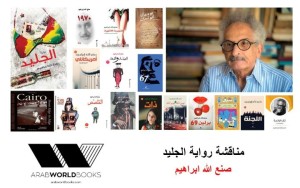Zaynab Fawwaz also written Zainab Fawwaz (1846-1914) was not only a prominent writer but also a multifaceted figure who profoundly influenced the intellectual and social life of her era. She is considered one of the most prominent feminist figures in the Arab world during the nineteenth and early twentieth centuries. Fawwaz lived during a period when women suffered from marginalization and social restrictions, yet she was able to emerge as a powerful voice defending women's rights, armed with knowledge and culture, and using her pen as a tool for change.
Zainab Fawaz was born in the village of Tebnine in southern Lebanon to a modest family. Her family was not well-off, which led her to self-educate and develop herself, free from the social restrictions imposed on women. She began her life as a servant in the home of a prince, but she did not allow circumstances to limit her ambitions, seizing opportunities to learn from the books she found in the house.
Fawwaz married at a young age to a man named Adeeb Nazmi, but she was unhappy in her first marriage, as it was a conventional marriage that did not fulfill her intellectual aspirations. She later divorced him.
Zaynab came to Egypt in the late nineteenth century, a period that was witnessing a cultural and intellectual renaissance, especially in Cairo and Alexandria.
She married again, to an Egyptian man, but they soon divorced when she was only eighteen years old. She remained unmarried and lived independently until the end of her life.
Egypt was the place where she found greater space to express her feminist views and discuss social issues. She became involved in literary and journalistic work, writing for several newspapers and magazines such as Al-Muqtataf and Al-Hilal. Zaynab became part of the thriving literary movement, living a modest life but brimming with cultural and social activity. She formed intellectual and literary relationships with many writers and thinkers who encouraged and supported her ideas throughout her career. She was known for her strong personality and decisive approach to addressing feminist issues. She even interrupted Mustafa Kamel three times during one of his speeches, when he began with "Gentlemen..." and told him, "I am a 'ladies'..." She was the only woman present amidst a crowd of men, but she did not give up her position until he said, "Ladies and Gentlemen ..."—a stance that has remained in effect to this day.
Zaynab Fawwaz was not only a feminist in the Western sense; she presented her feminist vision from an Islamic and Arab cultural perspective. She based her defense of women's rights on Islamic texts and Arab history, which earned her ideas widespread acceptance in various circles.
Among the most important issues she advocated for, wrote about, and implemented were:
1. Defending women's education: She was one of the first to advocate for girls' right to education. In her articles and writings, she emphasized that educating women is the path to their liberation and the elevation of their social status.
2. Opposing forced marriage: Zaynab Fawwaz criticized forced marriage and traditions that violated women's rights, and demanded that marriage be based on mutual understanding and free choice. She powerfully portrayed these issues in her novel, " Ḥusn al-Awaqib (The Happy Ending) or "Ghada Alzahraa".
3. Confronting polygamy: Zainab Fawwaz was one of the most prominent feminist voices calling for the legalization or prohibition of polygamy, as it causes psychological and social harm to women.
4. Highlighting the Role of Women in History: Through her book "Al-Durr Al-Manthur fi Tabaqat Rabbat Al-Khudur," she shed light on influential women in history, emphasizing that women have played prominent roles throughout history.
5. Work and Economic Participation: She emphasized that women should be economic partners, not only as mothers and wives, but also as active contributors to societal development.
In the literary and journalistic fields, Zaynab Fawaz was a prolific writer, focusing on feminist, social, and literary issues. Her name was associated with several magazines and newspapers, such as Al-Muqtataf and Al-Hilal, where she published articles defending women's education and their right to work and participate in public life.
Zaynab Fawaz was also a poet and novelist. She excelled in the fields of novels, poetry, and social criticism. Her books and works were part of the literary and intellectual renaissance in the Arab world, and her works reflect her courage in raising issues that were considered taboo in her time.
In her book "Al-Durr Al-Manthur fi Tabaqat Rabbat Al-Khudur," an encyclopedia of famous women in Islamic and world history, Fawwaz explores the biographies of prominent women throughout history. Her goal is to highlight the active role women play in society, challenging prevailing notions that exclude women from the pages of history. This book is considered the first Arab feminist book of its kind, shedding light on women's achievements. She relied on traditional sources, giving it credibility and historical value. Then comes her novel, "Happy Ending or Ghada al-Zahraa," which is considered the first novel written by Zaynab Fawwaz. It is considered one of the oldest Arabic novels, and we can even say that it is the first novel in the comprehensive sense of this literary genre. The novel revolves around the story of a young girl who is forced to marry a man she does not love, leading to a series of tragic events. It discussed issues such as forced marriage and personal freedom, and boldly explored women's issues in a conservative society, making the novel a milestone in feminist literature. Zaynab Fawaz's poetry collection, which includes poems written in a distinctive literary style, addresses diverse topics such as social and national issues and love poetry. Zaynab Fawaz used poetry as a means of expressing her worldview and advocating for women's rights. The collection reflects Zaynab's ability to use poetry as a tool for social influence.
As mentioned earlier, Fawwaz also published articles in newspapers and magazines. She published many articles in Arab newspapers such as Al-Muqtataf and Al-Hilal. These articles focused on women's issues, education, and social reform. Her articles provided a platform for expressing her feminist views and contributed to raising awareness of the importance of gender equality.
As for Zaynab Fawwaz's unfinished writings, which she had begun working on, they were other projects in the field of literature and thought, but unfortunately, she never completed them.
Finally, Zaynab Fawwaz is an exceptional voice for her time, laying the foundation for the feminist movement in the Arab world. Her writings provided a platform to inspire women to seek their rights. Despite the challenges she faced, she was able to leave an indelible mark. What distinguishes Zaynab Fawwaz is that she addressed the Arab mind through logical arguments and using examples from the heritage, making her ideas acceptable to both men and women. Fawwaz is not only a historical figure, but a symbol of the struggle against social and cultural injustice. Her intellectual legacy stands as a testament that women in the Arab world have always been an active part of the movement for change and that they are capable of leading society toward a more just and equal future.




